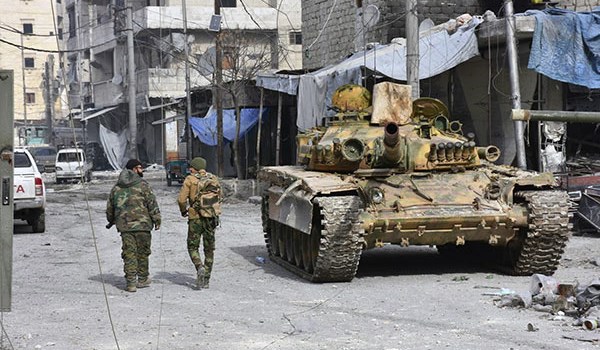Damascus: Army Advances in Strategic Areas


The army forces, supported by artillery and missile units, clashed with the terrorists in Barzeh and Tishrin farms, and regained control of large areas from the Western parts of Damascus-Homs highway to the Eastern parts of al-Qaboun and Damascus city.
Meantime, the Syrian Observatory for Human Rights (SOHR) reported that by advancing in more areas, the Syrian army gained its primary military objective in the region which is laying full siege on the Eastern parts of Damascus province, including al-Qaboun, Tishrin and Barzeh.
Relevant reports said on Wednesday that the Syrian army troops fended off a heavy attack of al-Nusra Front on their positions in the Northeastern outskirts of Damascus city, killing or wounding a large number of terrorists.
The al-Nusra terrorists launched their attack on Tishrin district’s police building, media center building and the district’s hospital.

The terrorists started their offensive with RPG rockets, while the group’s snipers were also targeting army soldiers, followed by a raid. But they sustained heavy casualties and pulled back after facing tough resistance and the powerful defense of the Syrian army.
Army reports indicated death of, at least, three al-Nusra snipers in the clashes.
In the meantime, an informed source denied terrorists’ claims about their advances in Barzeh farms, and underlined that the army men foiled terrorists’ plan to penetrate into Barzeh farms via their tunnels, killing four terrorists.







